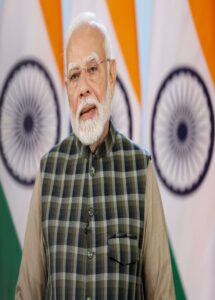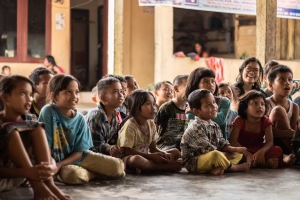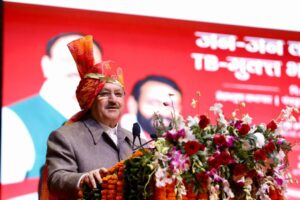Global South Needs Debt Restructuring to Achieve SDGs, Says Amitabh Kant at CII Partnership Summit

New Delhi, December 3: Amitabh Kant, India’s G20 Sherpa, emphasized the need for a comprehensive debt restructuring for the Global South to meet the Sustainable Development Goals (SDGs). Speaking at the session on ‘Development Through South-South Collaboration’ during the 29th Confederation of Indian Industry (CII) Partnership Summit, Kant highlighted that many countries in the Global South are spending more on debt interest payments than on essential sectors like education and healthcare.
The summit, held in New Delhi on December 3, was organized by the Confederation of Indian Industry (CII) in partnership with the Department for Promotion of Industry and Internal Trade (DPIIT), Ministry of Commerce and Industry.
Kant pointed out that emerging markets are expected to contribute a significant portion of global growth over the next three decades, underscoring the need to redesign financial institutions to better serve the needs of the Global South. He also stressed the importance of technological innovation, particularly Digital Public Infrastructure (DPI), in driving economic growth in the region. “India has demonstrated this by technologically pole-vaulting through the Digital Public Infrastructure (DPI). The important thing about DPI is that it is open source, open API, and globally interoperable. The data belongs to the citizen, not monopolized by big tech,” Kant said.
In addition, Kant called for a credit rating system for companies based on their greenhouse gas emissions, as large companies are responsible for a significant share of such emissions.
Rithi Pich, Secretary of State (Deputy Minister) at the Ministry of Commerce, Kingdom of Cambodia, noted that South-South cooperation has evolved into a vital mechanism to address the unique challenges faced by developing nations due to differences in resources, technology, and infrastructure. “By fostering trade and national and global integration, we would be able to create inclusive and sustainable economic opportunities to counteract global economic and trade uncertainties,” Pich added.
Minn Minn, Deputy Minister of Commerce, Republic of the Union of Myanmar, emphasized the need for coordinated and concrete actions to bridge the divide. “South-South cooperation provides a pathway for developing nations to share resources, knowledge, and innovative solutions to our unique context,” he stated. He also reiterated Myanmar’s commitment to regional integration.
Vikramjit Singh Sahney, Member of Rajya Sabha, India, and Chairman of Sun International Limited, remarked that this century belongs to the South-South and called for expanded trade. He identified five ‘Fs’ that should define the South-South partnership: food, fuel, fertilizers, freight, and the future. He suggested that developing countries must unite on international platforms to strengthen their negotiating power, especially in trade and climate finance.
Robert Appelbaum, Executive Consultant at Webber Wentzel, South Africa, remarked that South-South partnerships must go beyond procurement and become truly collaborative. He pointed to India’s support for vaccine supply during the COVID-19 pandemic as a strong example of such cooperation.
Nicholas Smedley, Chairman of FINDI, Australia, praised India’s collaborative approach with its regional neighbors, its economic reforms, and its ties across borders, which have spurred growth in services, manufacturing, and construction sectors in the region. He noted that India is uniquely positioned due to its geography, resources, and a young, driven workforce.





